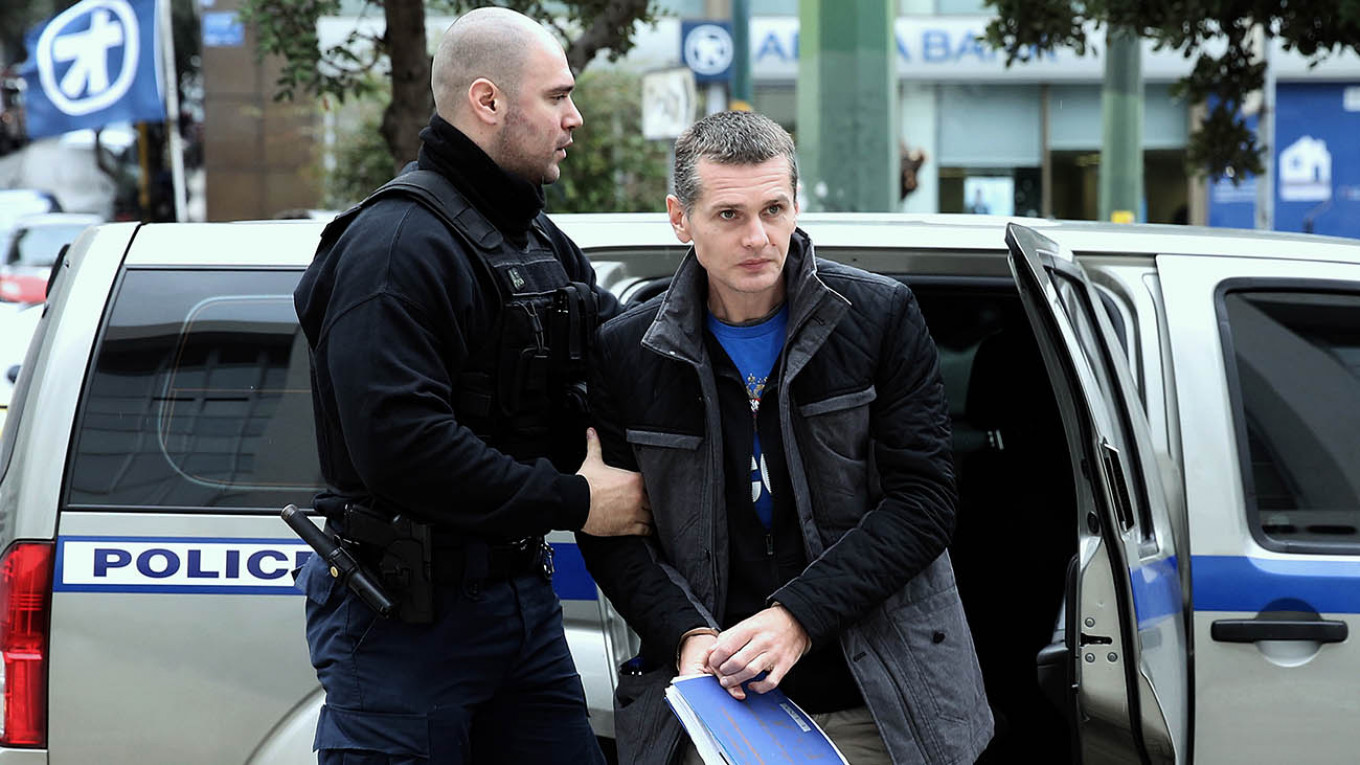Greece will extradite a Russian man suspected of having laundered billions of dollars in the digital currency bitcoin to France, the justice minister decided on Friday, court officials said.
Alexander Vinnik, the alleged mastermind of a $4 billion bitcoin laundering ring, is one of seven Russians arrested or indicted worldwide this year on U.S. cybercrime charges.
Greece's top court had cleared the way for Vinnik's extradition to the United States in December 2017.
But a final decision on where he would be extradited to rest with the Greek justice minister, who steps in to resolve competing requests. The United States, France and Russia have all made requests.
"Justice Minister Costas Tsiaras decided that 40-year old Vinnik should be finally extradited to France," one official said.
The ministerial decision mentions that a second destination should be the United States and lastly Russia, meaning that when he is done with his judicial proceedings in France he could be extradited to the United States.
According to his lawyer, the ruling led Vinnik to start a new hunger strike, calling the decision unfair and a "death sentence".
U.S. authorities accuse Vinnik of running BTC-e — a digital currency exchange used to trade bitcoin — to facilitate crimes ranging from computer hacking to drug trafficking since 2011.
He has denied the charges, saying he was a technical consultant to BTC-e and not its operator.
Since his arrest in a village in northern Greece, Moscow has also requested he be returned home, as it has done before with other nationals wanted by the United States.
Vinnik has agreed to be returned to Russia, where he is wanted on lesser fraud charges amounting to 10,000 euros. He had appealed to the Greek Supreme Court against a ruling that he be extradited to the United States but the Supreme Court rejected his appeal.
Bitcoin was the first digital currency to successfully use cryptography to keep transactions secure and anonymous, making it difficult to subject them to conventional financial regulations.
Vinnik continues to be treated in an Athens hospital for health problems following a hunger strike in November 2018 that lasted 88 days.
A Message from The Moscow Times:
Dear readers,
We are facing unprecedented challenges. Russia's Prosecutor General's Office has designated The Moscow Times as an "undesirable" organization, criminalizing our work and putting our staff at risk of prosecution. This follows our earlier unjust labeling as a "foreign agent."
These actions are direct attempts to silence independent journalism in Russia. The authorities claim our work "discredits the decisions of the Russian leadership." We see things differently: we strive to provide accurate, unbiased reporting on Russia.
We, the journalists of The Moscow Times, refuse to be silenced. But to continue our work, we need your help.
Your support, no matter how small, makes a world of difference. If you can, please support us monthly starting from just $2. It's quick to set up, and every contribution makes a significant impact.
By supporting The Moscow Times, you're defending open, independent journalism in the face of repression. Thank you for standing with us.
Remind me later.






